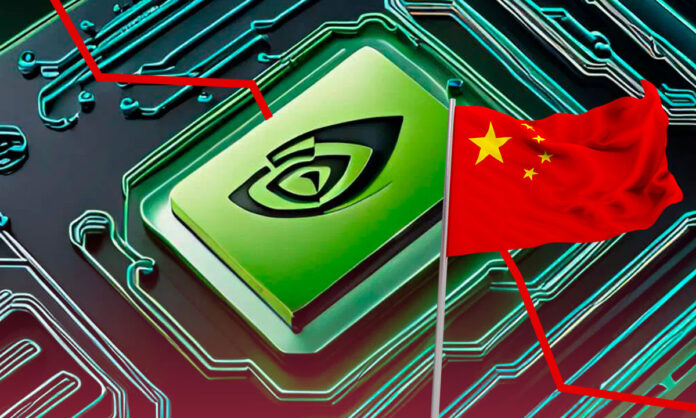Nvidia resumes sales of advanced AI chips in China, marking a significant step in the company’s efforts to maintain its dominance in the lucrative AI semiconductor market. The announcement, made Tuesday, comes just ahead of CEO Jensen Huang’s visit to Beijing, where he is expected to strengthen ties with local stakeholders.
In its statement, the tech giant confirmed it has filed the necessary applications to resume exports of its flagship Nvidia H20 GPU model. The US government has reportedly agreed to grant export licenses, allowing Nvidia to restart shipments soon. For institutional investors, this move underscores Nvidia’s commitment to safeguarding its revenue streams in one of its most critical regions.
Eased Restrictions Offer Renewed Market Access
Market participants have been closely monitoring Washington’s export policies. Under President Biden’s administration, strict curbs were imposed on the sale of cutting-edge chips to China to limit Beijing’s AI capabilities. However, the Trump administration recently scrapped additional planned restrictions, opting instead for industry guidance to mitigate national security risks.
This shift provides Nvidia with a window of opportunity to regain ground in a market where domestic competitors like Huawei are rapidly gaining momentum. For shareholders, this regulatory adjustment could help stabilise Nvidia’s market share while addressing investor concerns over prolonged revenue losses.
China Remains a Core Growth Driver
In parallel with resuming shipments, Nvidia is seeking to reinforce its local presence through a planned research and development centre in Shanghai. Back in April, CEO Jensen Huang met with Shanghai’s mayor and Vice Premier He Lifeng to discuss deepening cooperation. He also praised the “substantial potential” of China’s economy — a positive signal for long-term investors assessing regional growth prospects.
According to official data released Tuesday, China’s GDP growth moderated slightly in the second quarter but remains in line with its 2025 target of approximately 5%. Nonetheless, escalating trade tensions under President Trump’s renewed tariff offensive could pose challenges for foreign players like Nvidia operating in the Chinese market.
Implications for Shareholders
The fact that Nvidia resumes sales of advanced AI chips in China should reassure investors of the company’s ability to navigate geopolitical headwinds while defending its leadership in AI hardware. Analysts expect the resumed shipments to positively impact quarterly revenue forecasts and bolster Nvidia’s competitive edge in the global semiconductor race.
The R&D expansion plan in Shanghai, if realised, may further embed Nvidia in China’s AI supply chain, balancing the risks posed by local rivals and shifting export controls. Investors will be watching closely for updates on licensing progress and the timeline for full-scale deliveries.


